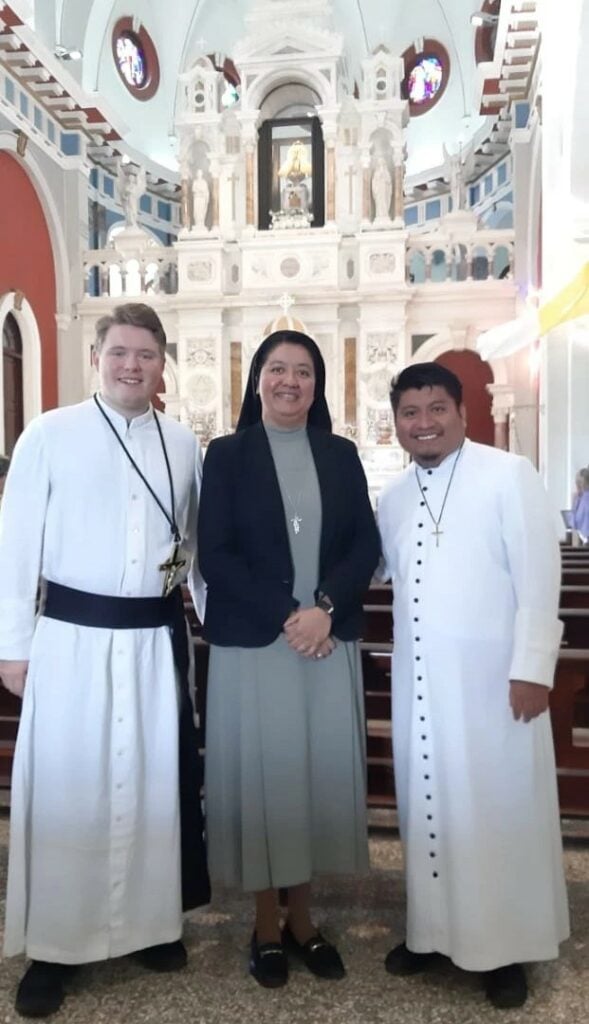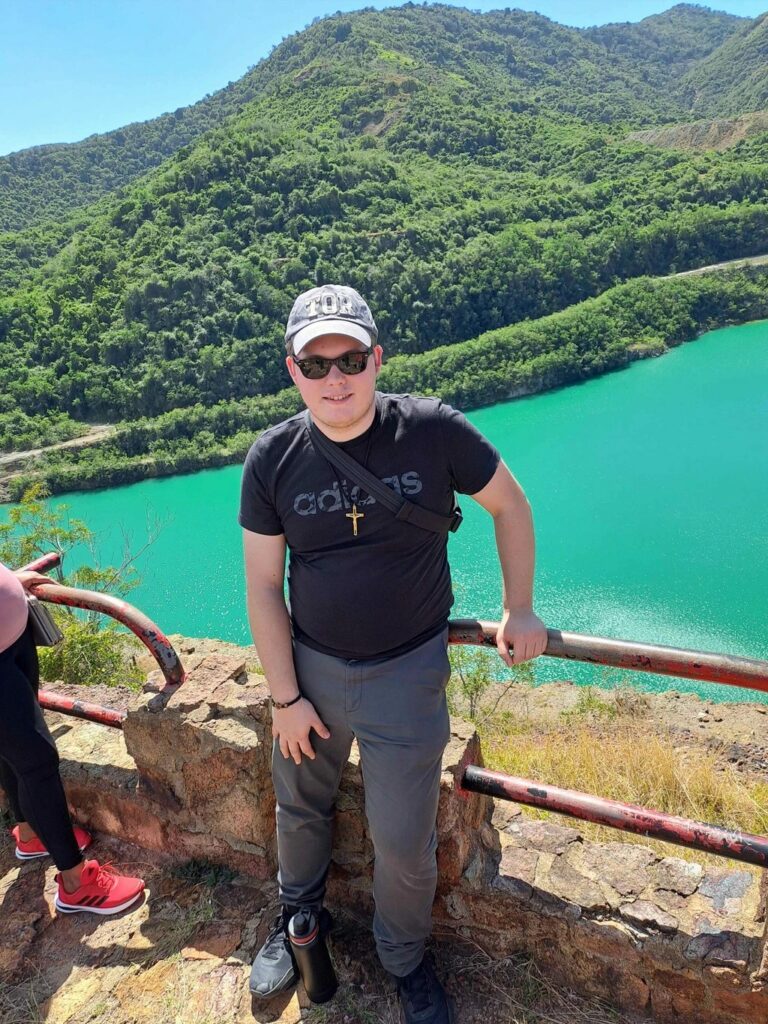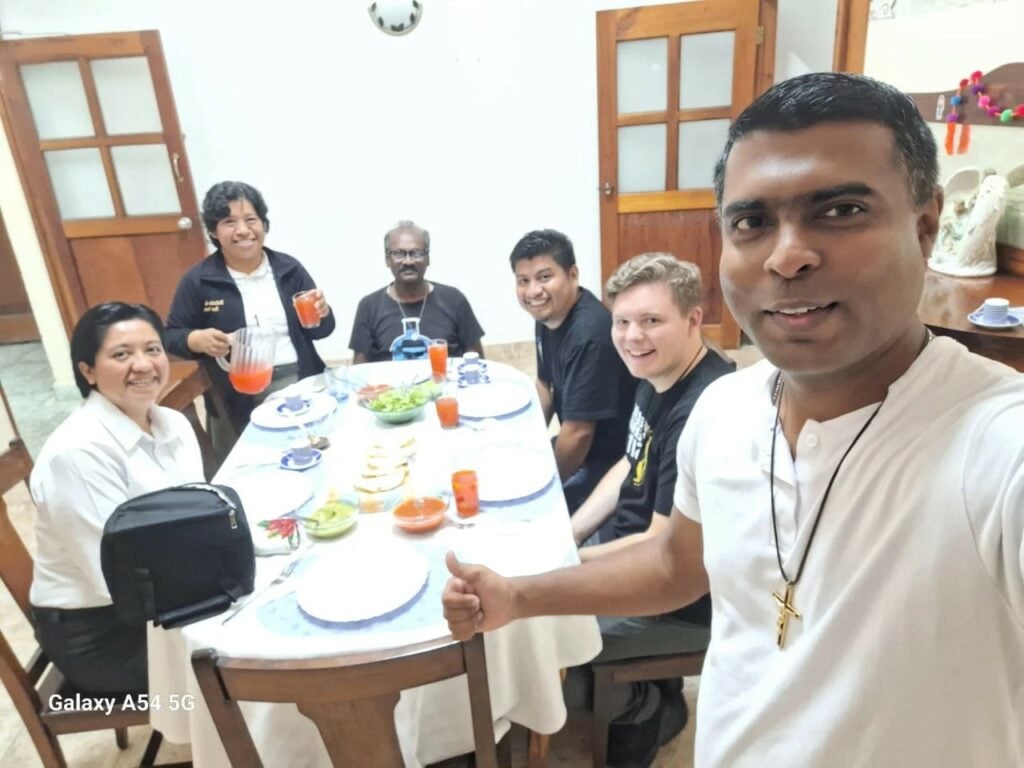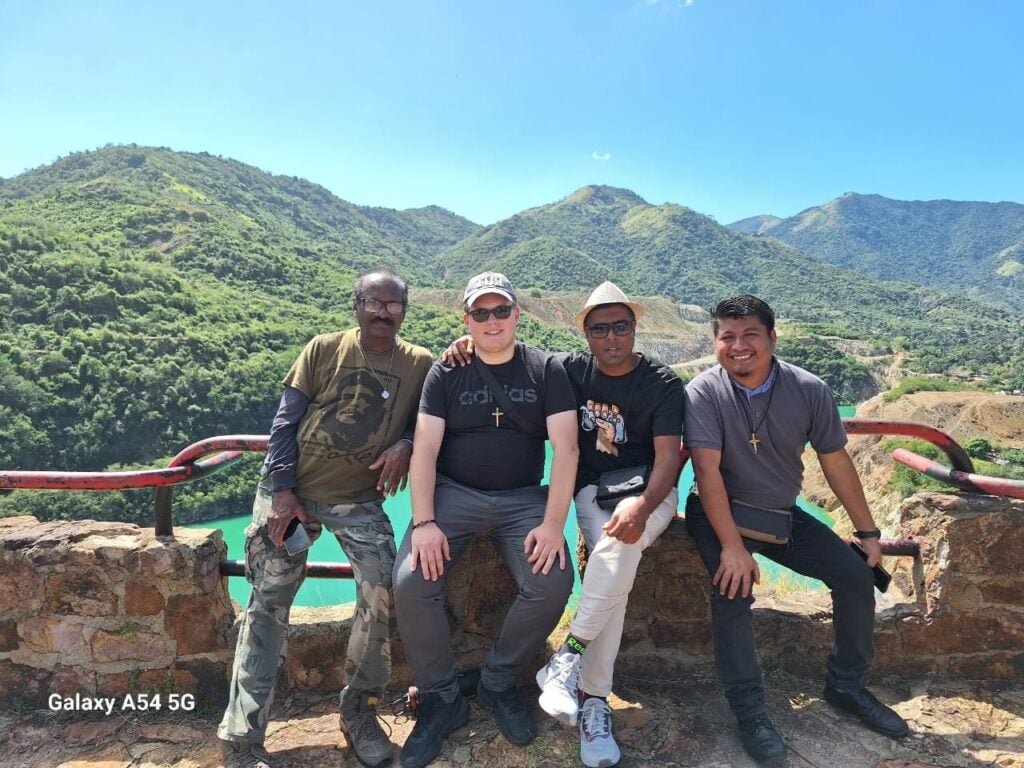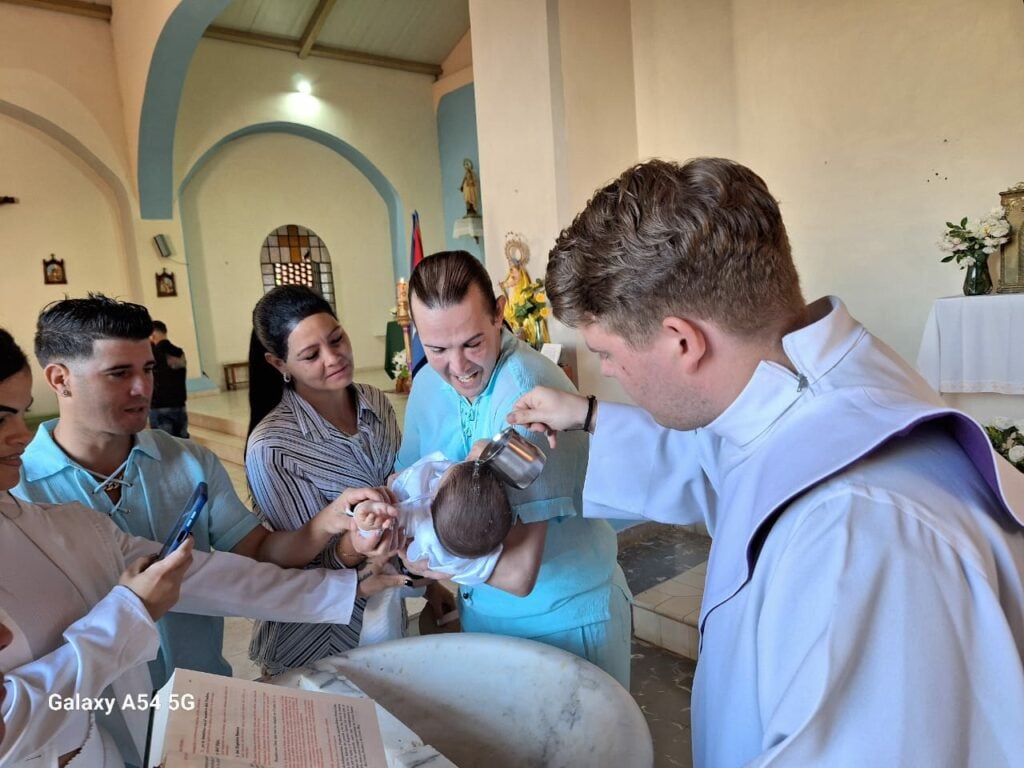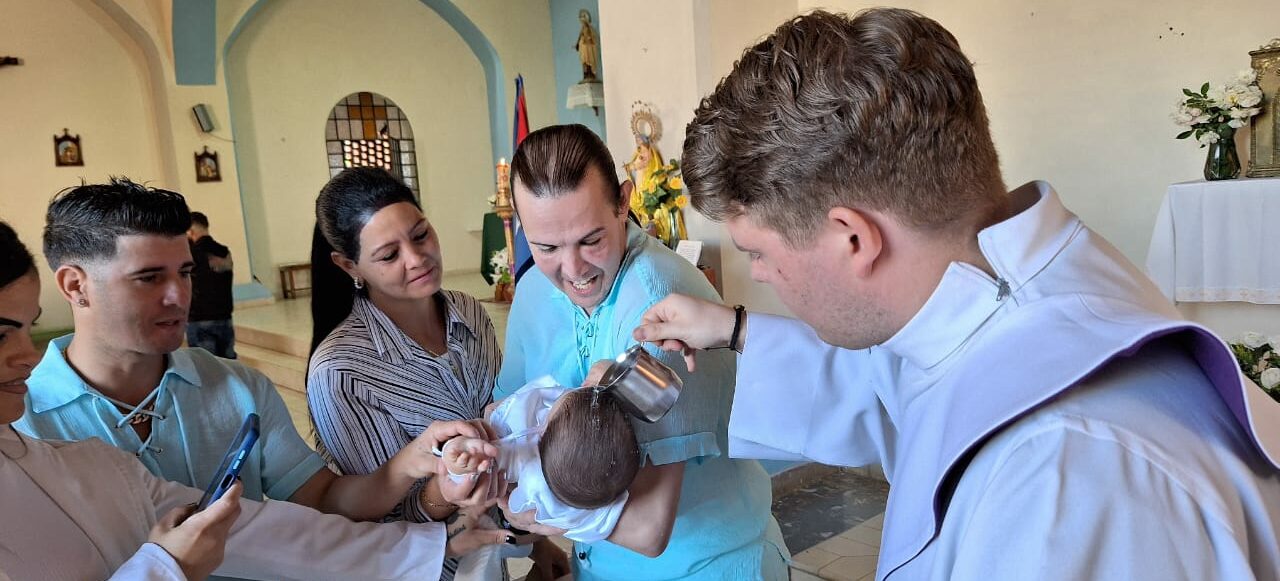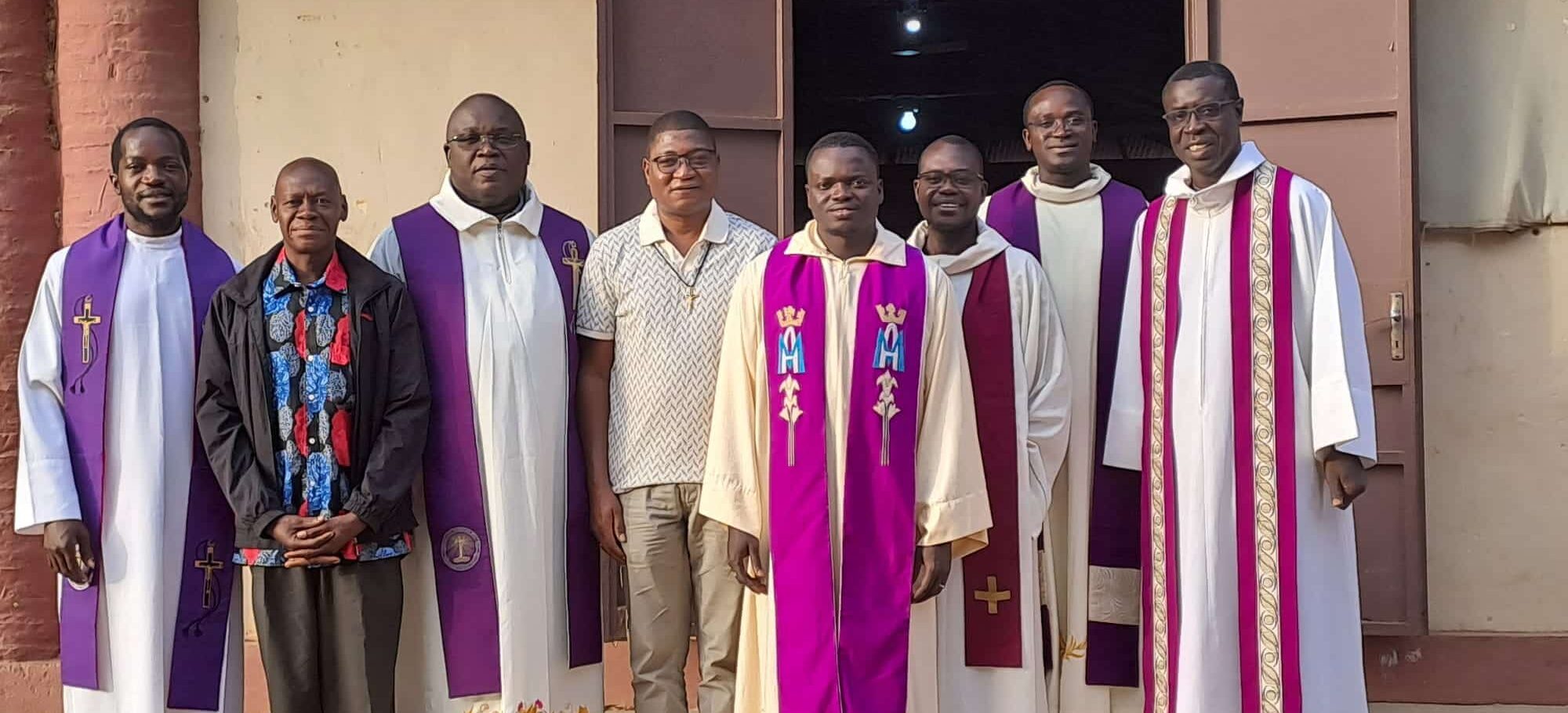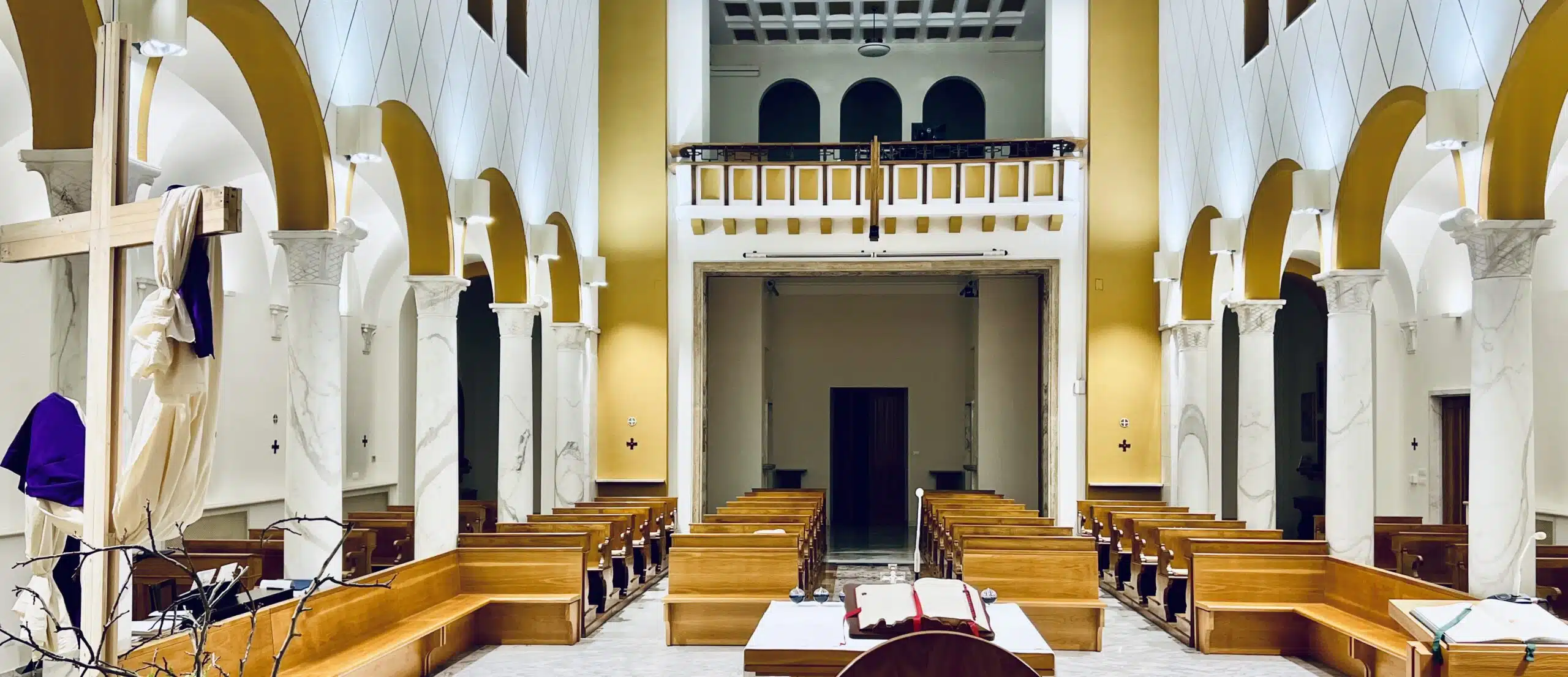Jonasz LALIK, OMI
On January 25th in the early morning, I embarked on my voyage to Cuba. This was the start of my missionary experience. As Oblates we are obliged by our norms of formation to live a certain period of our time in first formation in a culture that is not our own. This experience is to prepare missionaries in order to minister better to people. Living in a culture that is foreign to the one that you know helps you later to be more understanding of people and better equipped to pastor to the flock of faithful.
As a part of my missionary experience, the Assumption Province sent me to Cuba. I wasn’t exactly sure what I would encounter there. I had heard many things about the current situation of the church and society on this island. One doesn’t exactly know what the situation is until he arrives. My journey of understanding the situation in Cuba began when I arrived in the late afternoon of January 25th. I spent my first couple days adjusting to the climate and discovering slowly the dynamic of the parishes that the Oblates serve in Havana. I came to Fr. Ireneusz and Fr. Tomasz, both originally from Poland, as well as Deacon Juan Carlos, who is also on a missionary experience and is originally from the Province of Mexico.
After a couple of days, adjusting and getting to know the reality of the mission here, I traveled with the Oblate community of Havana to our community in Los Palacios. It is here where I have spent the rest of my time so far and where I will spend the six months of my mission experience.
I’m in community with two other Oblates. Fr. Roger, an experienced missionary, has more than 60 years of mission experience in Haiti, Columbia and Cuba. He is originally from the province of the United States. I’m also in community with Fr. Sheehan, originally from Sri Lanka. In my first couple days I came to know the reality of the parishes that the Oblates serve. In Los Palacios, we serve two parishes and three chapels. The parish communities are very small. This is because many people cannot go to church as they might lose their jobs with the government or have simply left Cuba searching for a better life elsewhere. Those that remain in the church community have a strong faith and a desire to build community. There are people who have a strong Eucharistic faith and deep Marian devotion.
My experience in Cuba so far has been very active. I flew in, expecting that I would first have some time to attend Spanish classes before taking on responsibilities in the parish community. This would be ideal. However, the necessities of the mission do not allow for such a reality. I was thrust into ministry quite quickly. Though my Spanish is very basic at the moment, the people are happy that I am with them and I’m sharing the Gospel through my words and actions. My ministry includes proclaiming the Gospel, baptizing children, and visiting the sick of the community. I even had the possibility a couple of times to celebrate a Liturgy of the Word along with the right of administering Communion. This is due to the lack of priests. On Ash Wednesday, I was entrusted with celebrating the Liturgy of the Word and with the administration of ashes. It was a moving ceremony for those that have remained close to the church. Now we are ready to embark on the Lenten journey.
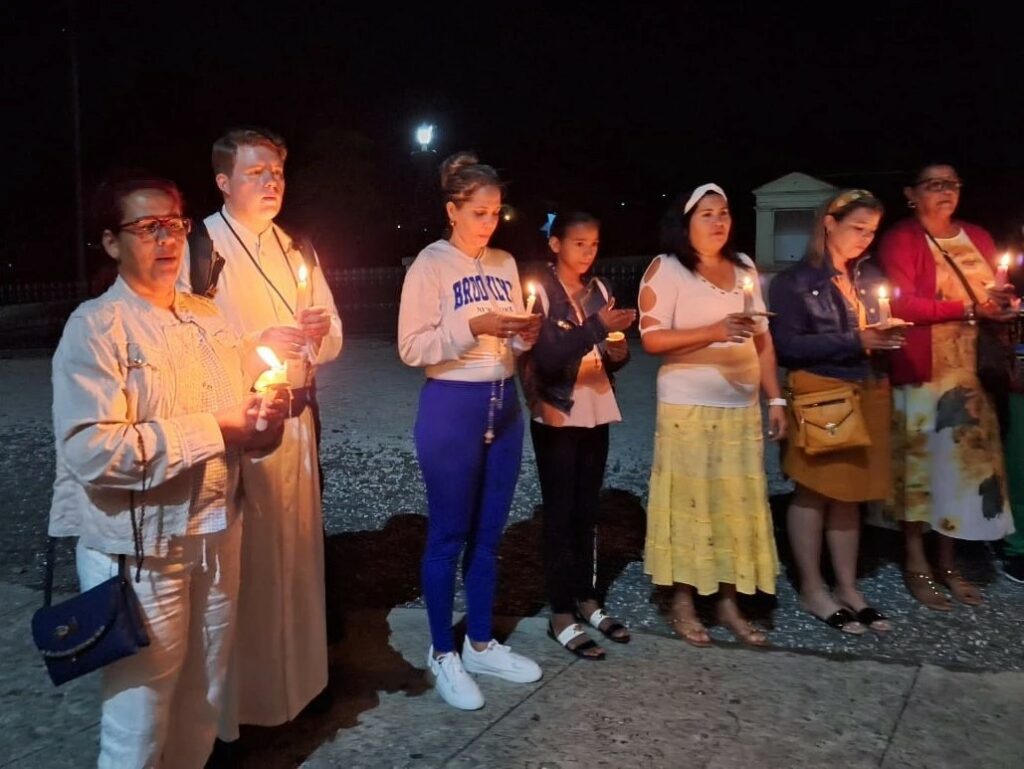
Deacon Jonasz with a group in prayer.
In short, my time in Cuba so far has been enriching. I’ve encountered severe poverty and some very difficult familial and economic situations of some families. What fills me with hope is the faith that people share with me. Their faith that God is above everything of this world helps me remember that as a missionary, I’m sent to witness to the hope that Christ gives through his sacrificial offering on the cross and resurrection from the dead on the third day.
